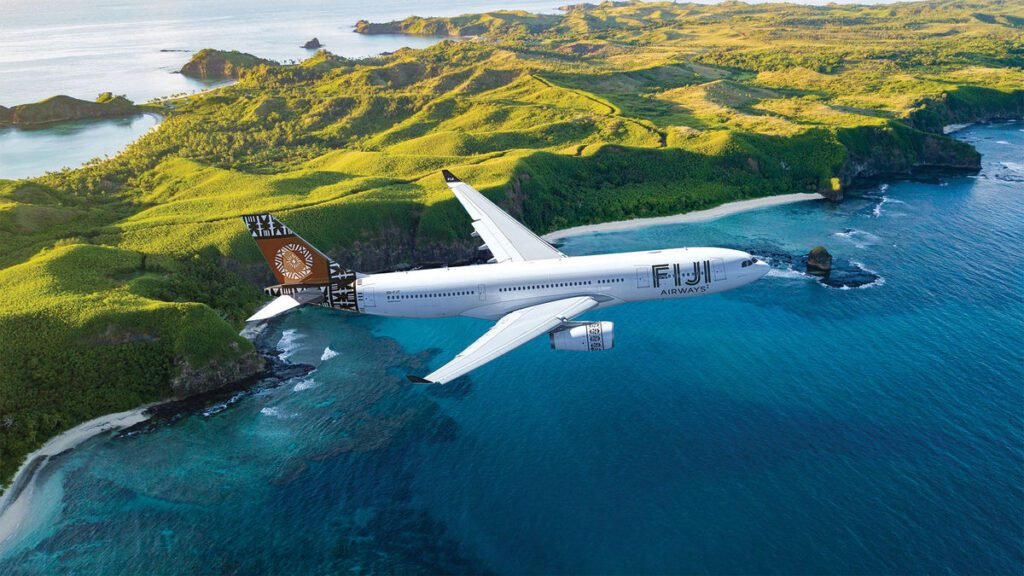LONG BEACH, Calif. — Fiji Airways, a small but ambitious airline with a fleet of just 14 aircraft, has made headlines this month by earning recognition as one of the top 10 airlines worldwide in the Airline Passenger Experience Association’s (APEX) awards.
The airline is particularly keen on expanding its footprint in the U.S. market, seeking to capitalize on emerging growth opportunities. Outgoing CEO Andre Viljoen shared insights during an interview at the APEX/Future Travel Experience conference on September 10. “We don’t expect much growth from Australia and New Zealand; however, we see immense potential in the United States,” he noted. Viljoen is set to join Air Mauritius next month.
Currently, the U.S., Australia, and New Zealand account for about 90% of Fiji Airways’ traffic, with the U.S. representing roughly 20%. A staggering 95% of the airline’s business comes from inbound leisure travelers.
Fiji Airways services four U.S. cities: Honolulu, Los Angeles, San Francisco, and Dallas-Fort Worth, with Los Angeles being the most frequently served destination, offering daily flight schedules. Notably, the airline recently introduced Dallas service thrice weekly in December, which Viljoen identifies as a prime opportunity for growth.
Challenges persist in filling the daily flights between Los Angeles and Fiji’s Nadi International Airport, as achieving sufficient demand often requires over 50% of passengers to be connecting through LAX from other North American locations. Fiji Airways’ recent integration into the Oneworld Alliance, including significant collaboration with American Airlines—Dallas’s dominant carrier—should simplify attracting connecting traffic. With Fiji Airways’ loyalty partnership allowing AAdvantage members to earn points akin to those gathered when booking with American, the potential for increasing U.S. travel is bolstered.
Fiji Airways is also gearing up to enhance its Dallas routes, planning to offer four weekly flights beginning in early 2024. While immediate plans for routes to Seattle are not in place, Viljoen expressed interest in utilizing the Oneworld partnership with Alaska Airlines for future operations.
Amenity Kits Discontinued for Streamlined Service
Amidst these growth strategies, Fiji Airways passengers can soon expect new onboard service changes, particularly in light of the airline’s recent APEX accolade. A key modification involves the discontinuation of traditional amenity kits, a trend divergent from many high-end airlines that often market these kits as luxury additions.
Viljoen explained the rationale behind this shift: “We’ve been analyzing for years how many travelers take home the amenity kit versus how many get left behind. The results indicated a lot of waste.” Instead of amenity kits, flight attendants will now circulate through business-class cabins with trays offering face creams, socks, headsets, and other complimentary items to enhance the flying experience without unnecessary costs.
The airline is also transitioning to an on-demand dining model for business class passengers on Los Angeles and Dallas flights, moving away from fixed meal times. This new service will roll out on the San Francisco route by November and is set to become standard across the entire Fiji Airways network by mid-2026.


